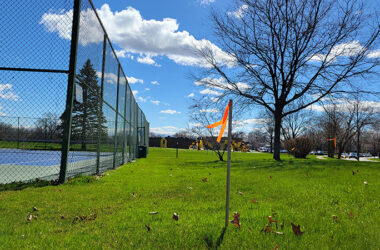As we ask more than ever from our medical workers, they also must maintain their own health and well-being.
Doctors and nurses are working longer hours under difficult circumstances, namely the immense toll COVID-19 has taken on the health care system’s resources.
Simultaneously, they balance monumental shifts in their personal lives, with children home from school, day cares closed and possibly spouses laid off.
“Most people are in overdrive at this stage,” said Tifany Jamison, an advanced practice nurse and professor of nursing at Governors State University. “We know people are going to die (from COVID). Just walking through the front doors, knowing, ‘Today I know someone is not going to come out of this.’ That in itself is so overwhelming.”
In addition to the stresses of work, right now nurses and doctors don’t have much access to healthy foods or even time to eat properly throughout the day, Jamison said. They also may have difficulty getting a restful night’s sleep. Working a 12-hour shift leaves another 12 hours to complete the day’s commute, bathing, eating, and home and family responsibilities.
“Then to settle yourself down mentally enough to go to sleep, that can be really difficult,” Jamison said.
Sister Ruth Luthman is vice president of mission integration at Franciscan Health in Olympia Fields. Part of her job involves serving the spiritual needs of patients and staff, including overseeing two Catholic priests and a group of lay chaplains.
A central part of their service, Luthman said, is being present with patients and staff—a practice that isn’t safe in the current situation.
“We quickly made adjustments to go more remote, and that’s a challenge in spiritual care because we’re used to being present,” Luthman said. “Now spiritual care chaplains, instead of going up to the rooms, are calling patients, calling the nursing units and calling families.”
A group of Catholic priests has volunteered to visit patients at their bedside to offer the Catholic sacrament of Anointing of the Sick, formerly known as Last Rites. Luthman emphasized that it is a sacrament of healing, and estimated that 80 percent of the hospital’s COVID patients leave to recover at home.
To alleviate stress for all parties, Luthman said they get nurses access to tablet computers so patients can connect visually with family members. One initiative focuses on ensuring patients who are going to be intubated talk with family members on a video call before nurses insert their breathing tube.
“If we could delay that intubation for five or 10 minutes, then at least the person can FaceTime their loved one and say whatever it is they need to say,” Luthman said. “That’s one of the most meaningful things we did in the ER. The nurses are used to family members being in there with patients, and they can’t be right now.”
A bulletin board near the PPE station is filled with cards of gratitude, many from children, which provide inspiration to the staff, Luthman said. The hospital distributed prayer cards to staff with a non-denominational sentiment, and other positive messages are posted near nurse’s stations.
Spiritual staff members are always available to counsel staff members, who can also visit the chapel, which remains open. The chapel also offers a prayer rug for use by the hospital’s Muslim staff.
Luthman said she and her team will continue to find ways to support and nourish the hospital staff for months to come.
“How do we support our employees for the long haul? Everyone has their way to nourish themselves,” Luthman said. “What nourishes me is a good one-on-one conversation with someone who listens. And of course, prayer.”



